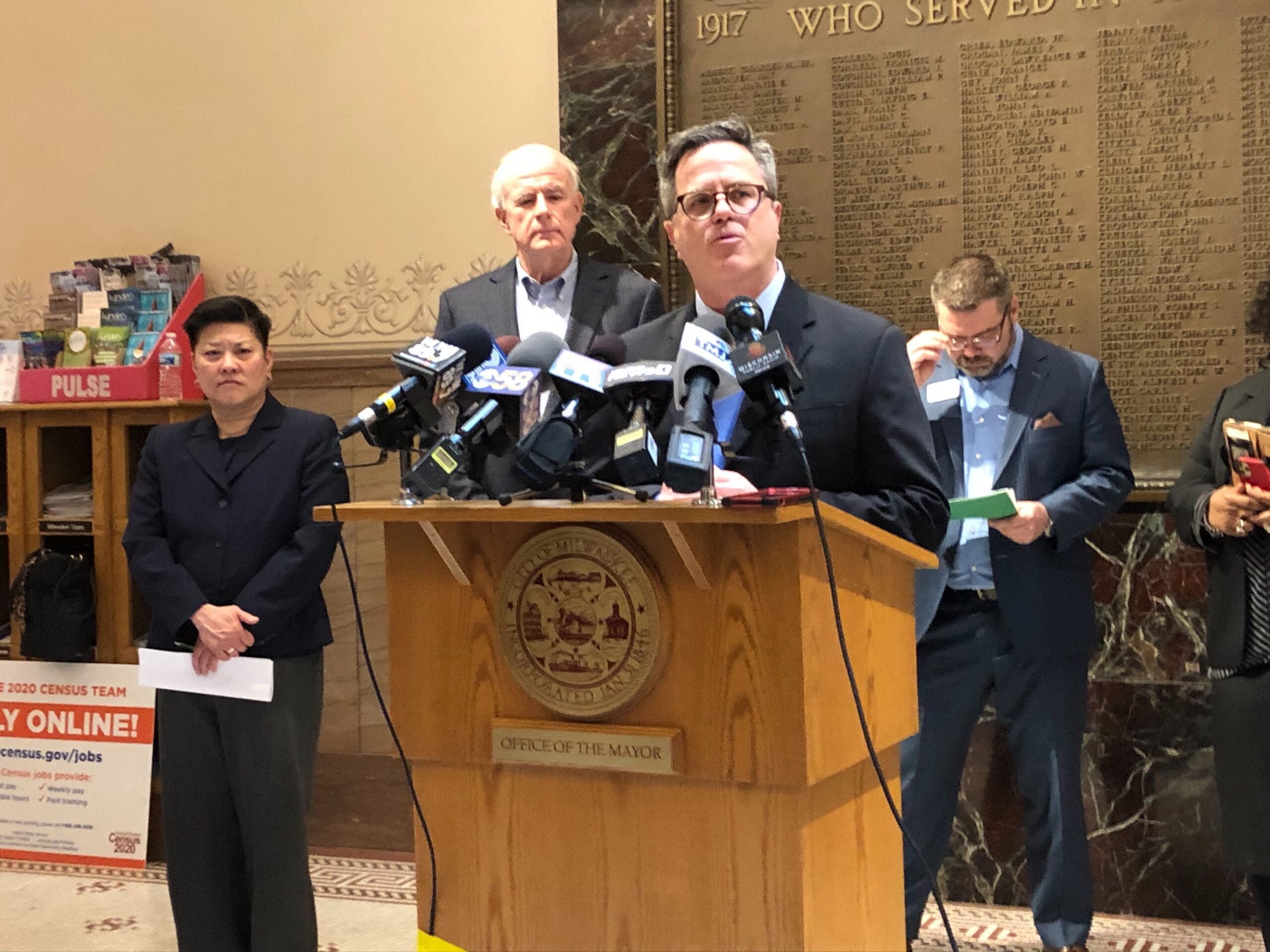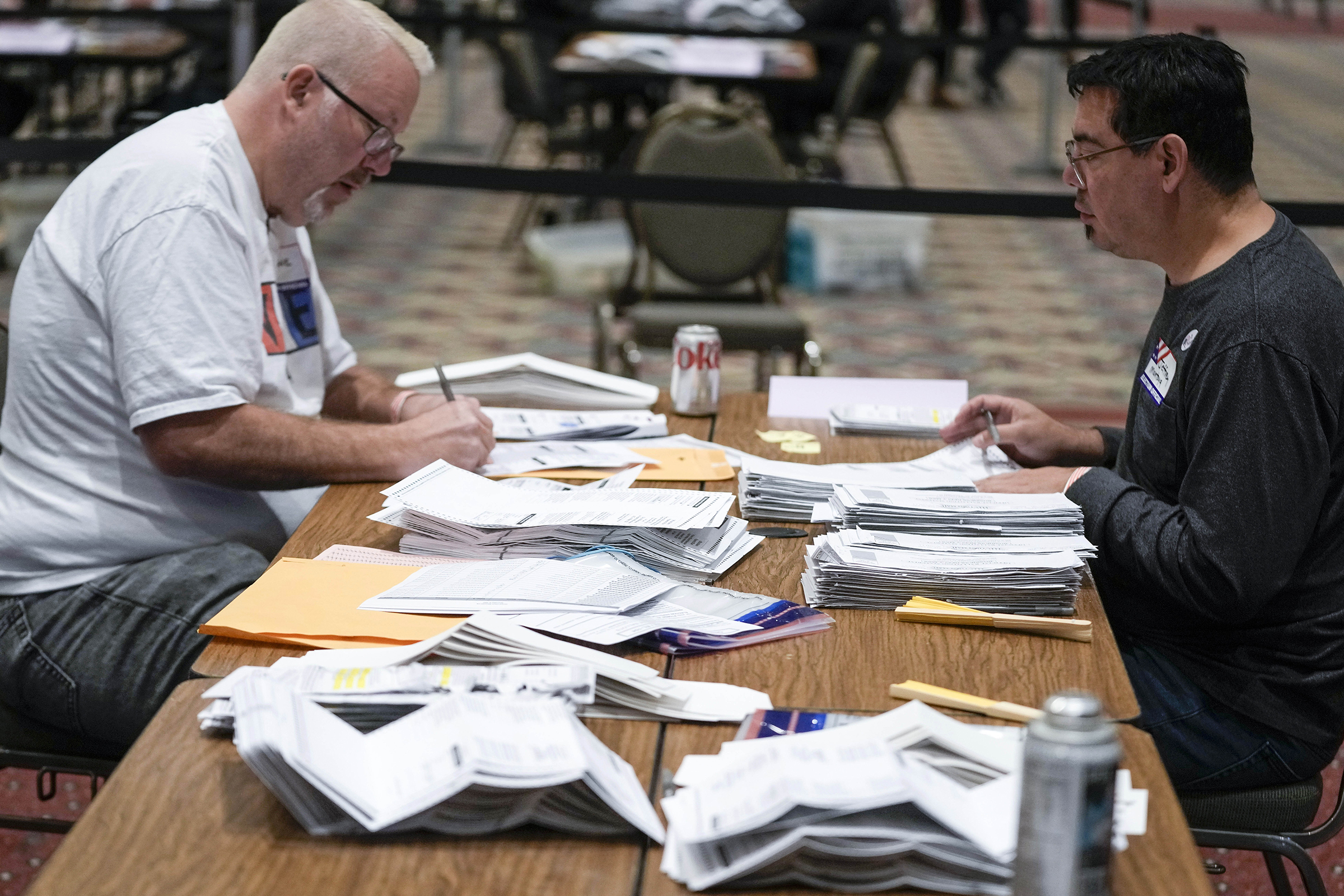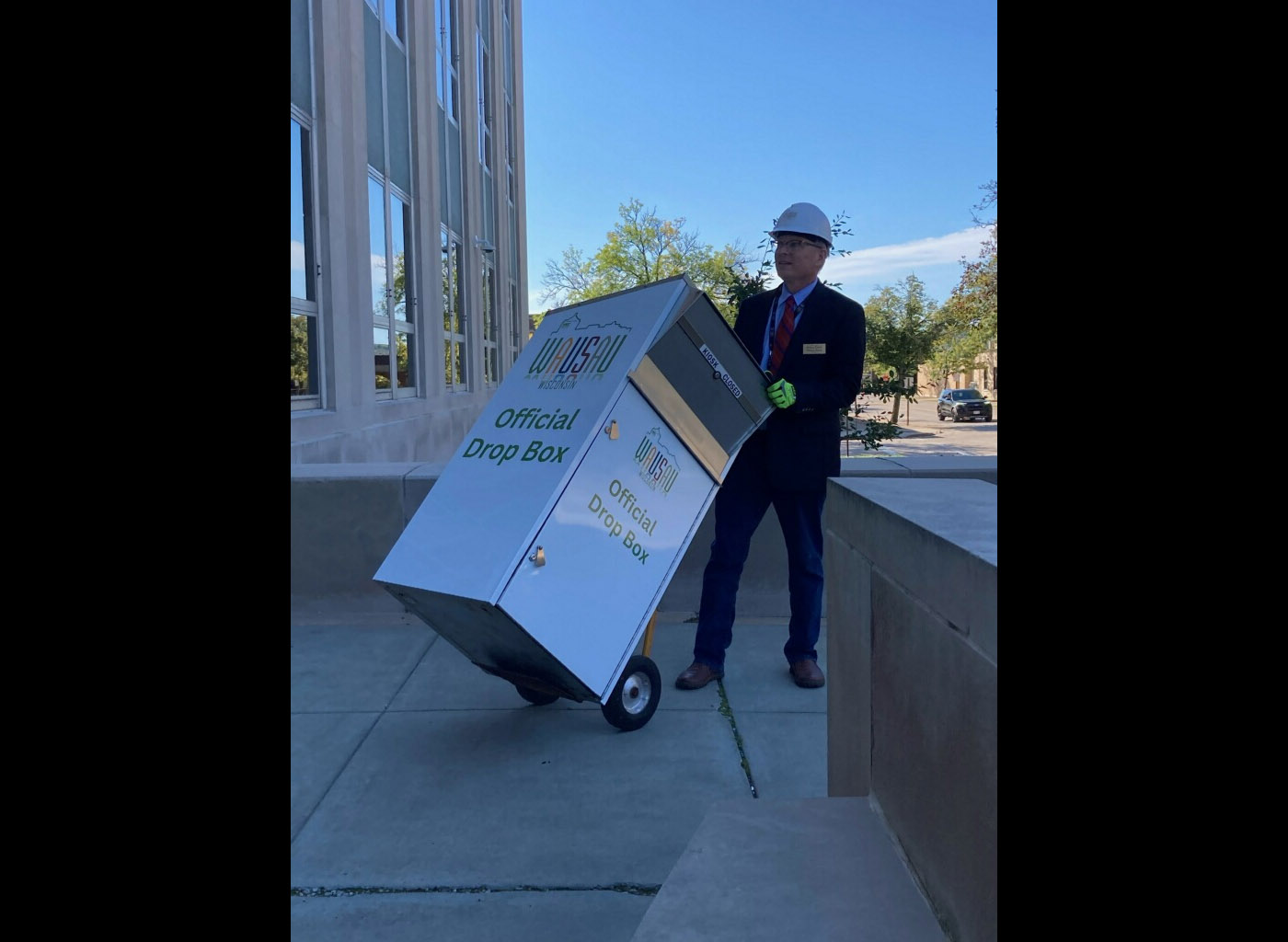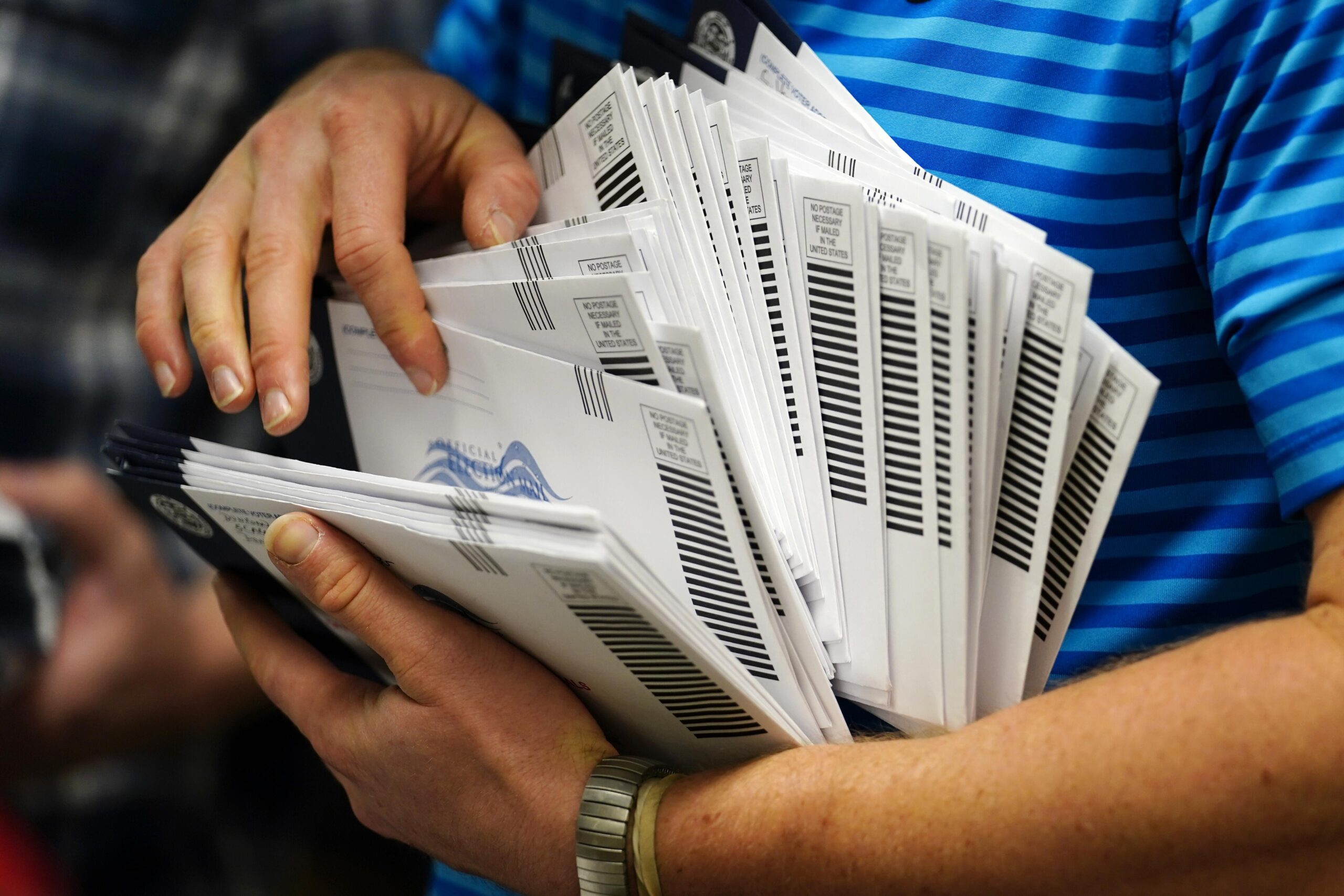There are no plans, at this time, to postpone the April 7 primary election in Wisconsin despite the ongoing coronavirus pandemic.
However, with more than half of the poll workers 60 years old and one-third over age 70, Milwaukee city officials made a plea on Sunday for younger volunteers. People who are over the age of 60 are considered at higher risk if exposed to the new coronavirus.
RELATED: Live: What To Know March 15 About COVID-19 In Wisconsin
News with a little more humanity
WPR’s “Wisconsin Today” newsletter keeps you connected to the state you love without feeling overwhelmed. No paywall. No agenda. No corporate filter.
City officials said they need about 1,800 poll workers to help from 6 a.m. until the polls close at 8 p.m. on April 7.
Milwaukee Mayor Tom Barrett suggested students who are home because their schools are closed might work the polls.
“This is an excellent opportunity for high school and college students to make sure this democracy is run in a fluid manner,” Barrett said.
The mayor also urged people to consider their voting options, including bringing their own ballpoint pen to the polls, voting early or absentee voting.
Early voting begins Monday.
“Early voting is a quick in, quick out experience. If you are concerned about crowds, you should consider this option this week,” Barrett said.
Absentee voting can be done on the state’s website. Residents must be registered to vote at their current address to request an absentee ballot. The close for online and mail registration is March 18.
Ballots must be received by Election Day to make sure they are counted.
Barrett said he has spoken to state Senate Majority Leader Scott Fitzgerald, R-Juneau, and Assembly Speaker Robin Vos, R-Rochester, to ask for flexibility on absentee ballot restrictions in light of the pandemic, but he doesn’t know if that will happen at this time.
“This option is no doubt the best option for any person considered at risk if exposed to the coronavirus,” Barrett said. “I think the real key here is having more people voting absentee at this election.”
Neil Albrecht, the executive director the city of Milwaukee Election Commission, said typically, a majority of voters vote in person at their polling place on Election Day. But he expects that number to be significantly less than an in any previous election.
For example, in the 2016 presidential election, 10,000 people in Milwaukee voted by absentee ballot. There have already been 12,000 absentee ballot requests and 1,000 requests per day in the city.
“I believe that is indicative of what the rest of the state of Wisconsin is experiencing, given what I have heard from my colleagues,” Albrecht said. “We anticipate 50,000 to 60,000 participants will vote absentee in this election. That represents a 500-percent increase. Usually seen in a presidential election.”
Wisconsin Public Radio, © Copyright 2025, Board of Regents of the University of Wisconsin System and Wisconsin Educational Communications Board.







